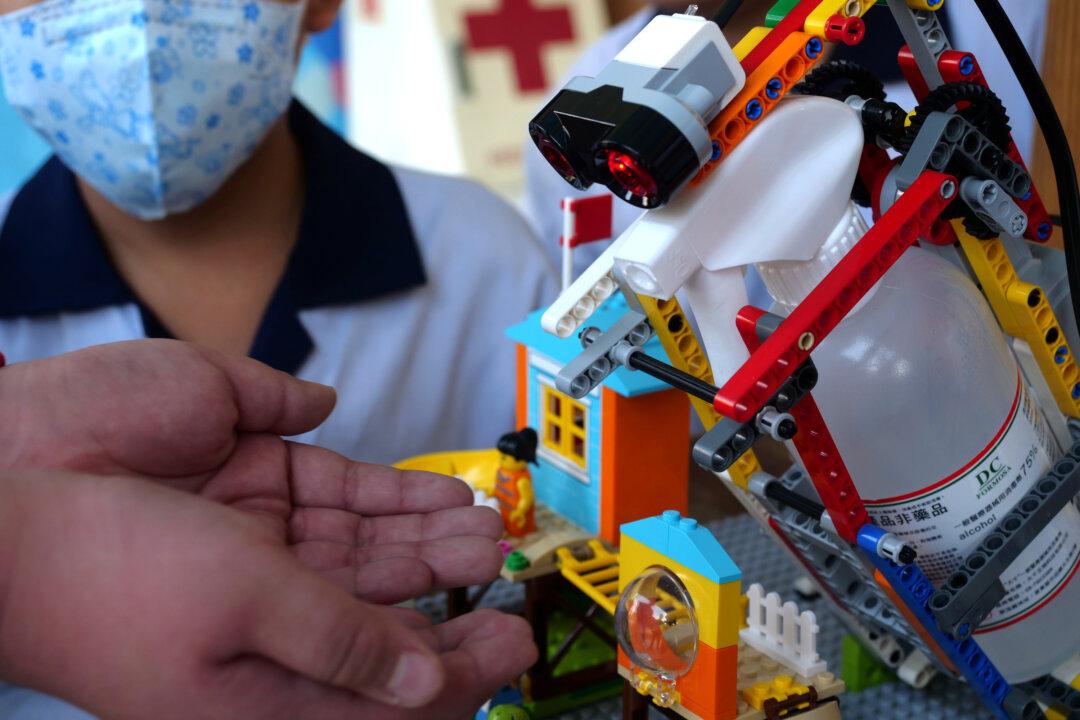KAOHSIUNG, Taiwan—Students at an elementary school in the southern Taiwanese city of Kaohsiung have found their own unique way to fight the coronavirus and stay ahead of the curve in epidemic prevention—an automated disinfectant dispenser built from Lego.
Children ranging from six to 12 years old use every school break and any chance they can get to line up to use their self-built alcohol disinfectant robot that some of their peers have assembled under the guidance of their robotics coach.





